detail profile theo angelopoulos
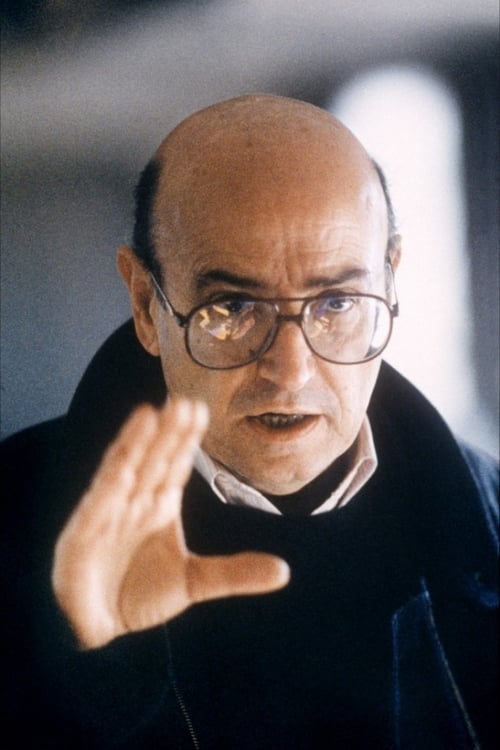
Theo Angelopoulos
Θόδωρος Αγγελόπουλος
atau dikenal sebagai
Riwayat Hidup
Theodoros "Theo" Angelopoulos (Greek: Θεόδωρος Αγγελόπουλος) (27 April 1935 – 24 January 2012) was a Greek filmmaker, screenwriter and film producer.
An acclaimed and multi-awarded film director who dominated the Greek art film industry from 1975 on, Angelopoulos was one of the most influential and widely respected filmmakers in the world.
He started making films in 1967.
In the 1970s he made a series of political films about modern Greece.
Angelopoulos' work, described by Martin Scorsese as that of "a masterful filmmaker", is characterized by slightest movement, slightest change in distance, long takes, and complex yet carefully composed scenes; his cinematic method, as a result, is often described as "sweeping" and "hypnotic.
"
In 1998 his film Eternity and a Day went on to win the prestigious Palme d'Or at the 51st edition of the Cannes Film Festival, and his films have been shown at many of the world's most esteemed film festivals.
In 2000 he was the President of the Jury at the 22nd Moscow International Film Festival.
The life of Theo Angelopoulos, his work, and his passion were the subject of a documentary directed in 2008 by Elodie Lelu.
Angelopoulos died late on Tuesday, 24 January 2012, at 76 years old after being involved in a crash with a motorcycle ridden by an off-duty police officer.
He was taken to hospital, where he was treated in an intensive care unit but succumbed to his serious injuries several hours later.
Description above from the Wikipedia article Theo Angelopoulos, licensed under CC-BY-SA, full list of contributors on Wikipedia.
Info Pribadi
Peran Yang Di Mainkan Theo Angelopoulos
 An anthology film following different stories...
An anthology film following different stories...Invisible World 2012
An anthology film following different stories around the theme of invisibility in the modern world.
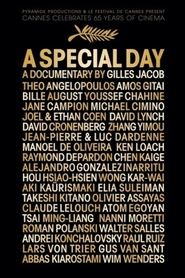 At the 60th anniversary of Cannes...
At the 60th anniversary of Cannes...A Special Day 2012
At the 60th anniversary of Cannes Film Festival, 34 famous directors are followed by camera.
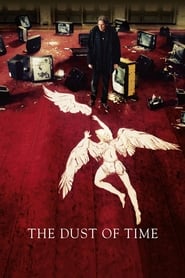 A an American film director of...
A an American film director of...The Dust of Time 2008
A, an American film director of Greek ancestry, is making a film that tells his story and the story of his parents. It is a tale that unfolds in Italy, Germany, Russia, Kazakhstan, Canada and the USA. The main character is Eleni, who is claimed and claims the absoluteness of love. At the same time the film is a long journey into the vast history and the events of the last fifty years that left their mark on the 20th century. The characters in the film move as though in a dream. The dust of time confuses memories. A searches for them and experiences them in the present.
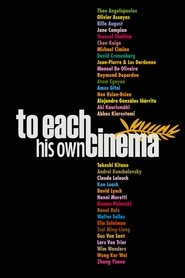 Commissioned to mark the 60th anniversary...
Commissioned to mark the 60th anniversary...To Each His Own Cinema 2007
Commissioned to mark the 60th anniversary of the Cannes Film Festival, "To Each His Own Cinema" brought together 33 of the world's pre-eminent filmmakers to produce short pieces exploring the multifarious facets of cinema and their perspective on the state of their chosen artform in the early 21st century.
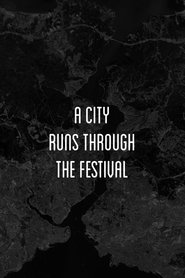 A City Runs Through the Festival...
A City Runs Through the Festival...A City Runs Through the Festival 2007
A City Runs Through the Festival is an anatomy of the Festival through the eyes of its own audience.
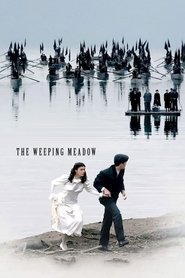 The first part of an incomplete...
The first part of an incomplete...The Weeping Meadow 2004
The first part of an incomplete trilogy telling the story of the greek people. The film begins in 1919, with Greek immigrants from Odessa arriving near Thessaloniki. Led by the charismatic Spyros, they establish a new settlement in the delta of a river. The youngest of the settlers are Spyros' son Alexis and an orphan from Odessa, Eleni. A strong, almost incestuous affection develops between the teenagers, resulting in twins who are given to a foster family. Also standing in the way of love is Spyros, determined to take his foster daughter as his wife. The lovers then decide to flee the village, persecuted by their father, leading a life of exile. As Alexis joins a group of musicians planning to go to the United States, Eleni regains custody of the twins. Angelopoulos, as in previous films, looks at the sacrifice of civilians confronted by the workers' demonstrations of 1935, the rule of Metaxas' fascist junta and forced emigration to America, and finally the civil war of 1944-1949.
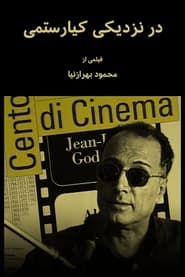 A documentary that focuses on Abbas...
A documentary that focuses on Abbas...Kiarostami in Close up 2000
A documentary that focuses on Abbas Kiarostami's cinematic philosophy talking to himself and other figures, and also seeks the opinion about his works both inside and outside his homeland.
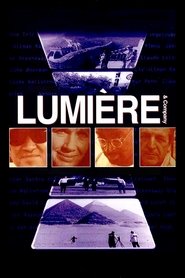 40 international directors were asked to make...
40 international directors were asked to make...Lumière & Company 1995
40 international directors were asked to make a short film using the original Cinematographe invented by the Lumière Brothers, working under conditions similar to those of 1895. There were three rules: (1) The film could be no longer than 52 seconds, (2) no synchronized sound was permitted, and (3) no more than three takes.
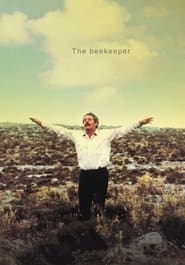 Following the wedding of his daughter...
Following the wedding of his daughter...The Beekeeper 1986
Following the wedding of his daughter, stone-faced beekeeper Spyros makes an annual journey from the north of Greece to the south, traveling along with his hives. En route, he meets an erratic, young female drifter, with whom he strikes up an unusual, self-destructive relationship.
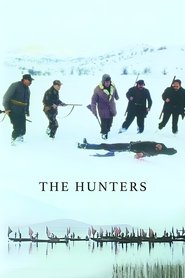 During a hunting party on New...
During a hunting party on New...The Hunters 1977
During a hunting party on New Year's Eve 1976, five representatives of the bourgeoisie encounter with their companion the body of a partisan from the Civil War of the late forties. What they are most confused about is the fact that the corpse that lies at their feet is still bleeding…
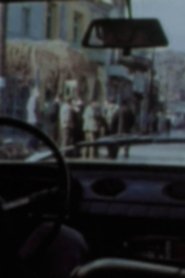 Michel Demopoulos directed only one film...
Michel Demopoulos directed only one film...The Other Stage 1975
Michel Demopoulos directed only one film in his life: a documentary about the shooting of Theo Angelopoulos’ O Thiasos / The Travelling Players (1975).
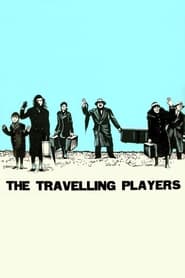 This expansive Greek drama follows a...
This expansive Greek drama follows a...The Travelling Players 1975
This expansive Greek drama follows a troupe of theater actors as they perform around their country during World War II. While the production that they put on is entitled "Golfo the Shepherdess," the thespians end up echoing scenes from classic Greek tales in their own lives, as Elektra plots revenge on her mother for the death of her father, and seeks help from her brother, Orestes, a young anti-fascist rebel.
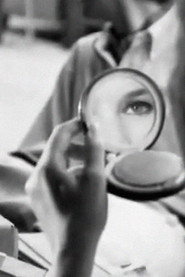 The team of journalists of a...
The team of journalists of a...Broadcast 1968
The team of journalists of a radio show asks women on the street for their definition of the ideal man in order to conduct a search for someone to fill the bill, a specimen who has all these characteristics. The lucky guy will spend a few hours in the company of a well-known movie star
 An ailing Greek man attempts to...
An ailing Greek man attempts to...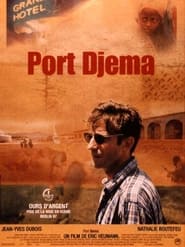 A doctor from Paris travels to...
A doctor from Paris travels to...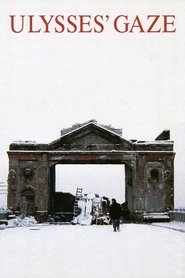 An exiled filmmaker finally returns to...
An exiled filmmaker finally returns to...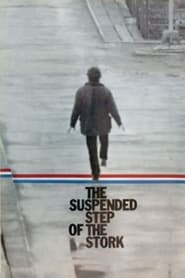 A reporter notices an old man...
A reporter notices an old man...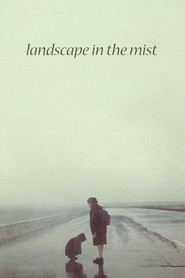 Two Greek children embark on a...
Two Greek children embark on a...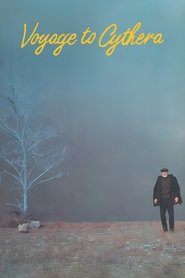 An old communist returning to Greece...
An old communist returning to Greece... Alexander a tribal warlord and former...
Alexander a tribal warlord and former...